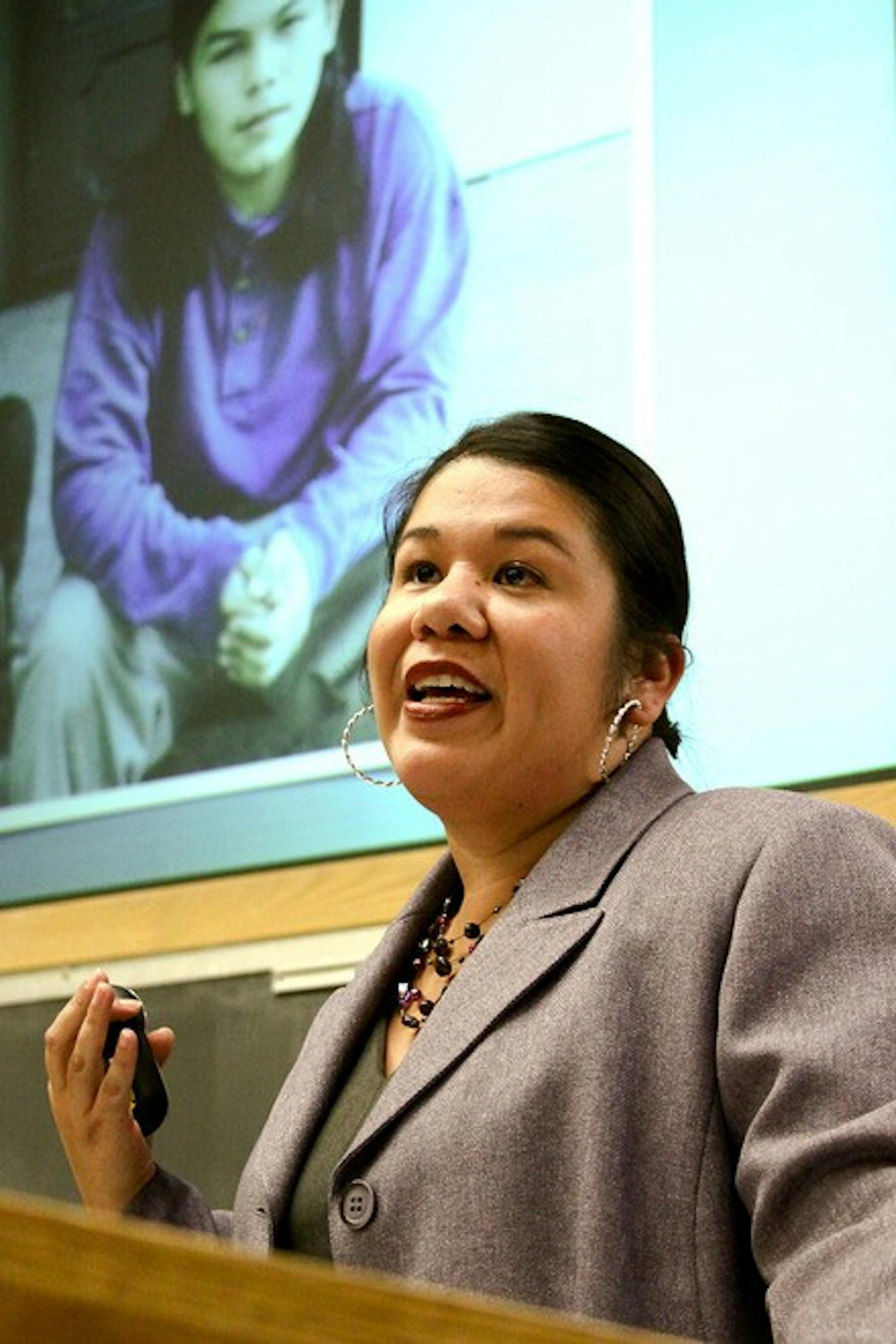"They struggle to put food on our plates at the severe cost of their bodies," Ramirez said in the lecture.
While compiling the 2010 report with SPLC legal director Mary Bauer, Ramirez interviewed 150 immigrant women from Mexico, Guatemala and other Latin American countries who work in the American food industry in Florida, California, Iowa, Arkansas, New York and North Carolina. Sixty percent of U.S. farmworkers are undocumented immigrants, according to the report, which aims to raise awareness about the exploitation of low-wage and female immigrant farm workers across various states, Ramirez said.
The in-depth interviews of immigrant women determined that women begin to believe that sexual harassment must be endured for a day's pay, Ramirez said. A study published in 2010 and cited in Ramirez's report found that 80 percent of women of Mexican descent working in fields across California's Central Valley experienced sexual harassment, she said.
Female farmworkers and low-wage immigrant women are victims of unequal pay, sexual assault and domestic abuse, Ramirez said.
"The female immigrant farm workers' desire to feed their families ties to manipulation," Ramirez said. "It's a terrible cycle."
Often unaware of their rights and unable to speak English, these women become isolated, vulnerable and dependent, which often results in exploitation by their employers, according to Ramirez.
"Rape is a weapon of war," Ramirez said. "Immigrant women are battling their own war and this situation has led to perpetrators often farm administrators and employers to feel they have authority over the female body."
Ramirez said she disagrees with the current "temporary guest-worker program" and emphasized the need for citizenship opportunities at the end of the immigration process. She also suggested that the United States should work with Mexico and other countries to improve their infrastructures so that they better support workers.
"Most of the women I speak to would like to stay in their country of origin," she said.
The rise of state anti-immigration legislation has contributed to a "climate of fear" among immigrant community members, Ramirez said. There are 142 active "anti-immigrant hate groups" on the East Coast, a 50 percent increase since 2000, she said.
Throughout her lecture, Ramirez emphasized the need for action to address women's exploitation.
"As Dartmouth students you have power, you can vote to choose policies to complement our beliefs," Ramirez said. "Politicians are accountable to us. Through exercising your right to vote, you have the power to prevent oppression to human rights."
Approximately 25 students and faculty members attended the talk, titled "Injustice on our Plates: Immigrant Women in the U.S. Food Industry."
Students interviewed by The Dartmouth said they were moved by Ramirez's lecture.
Irvin Gomez '14, president of Dartmouth's Latino political organization Movimiento Estudantil Chicano de Aztlan, said he found Ramirez's lecture thought-provoking.
"In our society, we traditionally see the worker as a man," Gomez said. "Ramirez memorably highlighted the female plight."
Discussing female farmworkers' plight is the first step toward finding a solution, Ramirez said.
"Talking about this is a way of attacking the power the perpetrators have," she said in an interview with The Dartmouth. "The key message I'd like to convey to Dartmouth students is that we are all connected and what happens to one person impacts all of us."
Ramirez also spoke to members of professor Timothy Ruback's public policy course, Immigration and Security Policy at the U.S.-Mexico Border, on Thursday morning.
Ramirez spoke meaningfully about "human effects" of immigration and border policy, Ruback said.
"When we discuss and study immigration, it is important to understand the qualities of lives lived," he said. "I am inspired by her commitment to pursuing the rights of the most vulnerable minorities."
Ramirez the daughter and granddaughter of Mexican migrant farm workers said that given her background, she understands the reality of families forced to leave their native land. She cited the desire to achieve justice for immigrant women and farmworkers as motivation for her legal career and the report.
"I consider myself both a humanist and feminist my career is my life mission," Ramirez said in an interview with The Dartmouth.
Ramirez decided to focus her legal career on female immigrant workers' plight because issues faced by male workers are often prioritized, she said in the interview. At SPLC, Ramirez represents immigrant workers in court and seeks to raise public awareness of their hardships.




